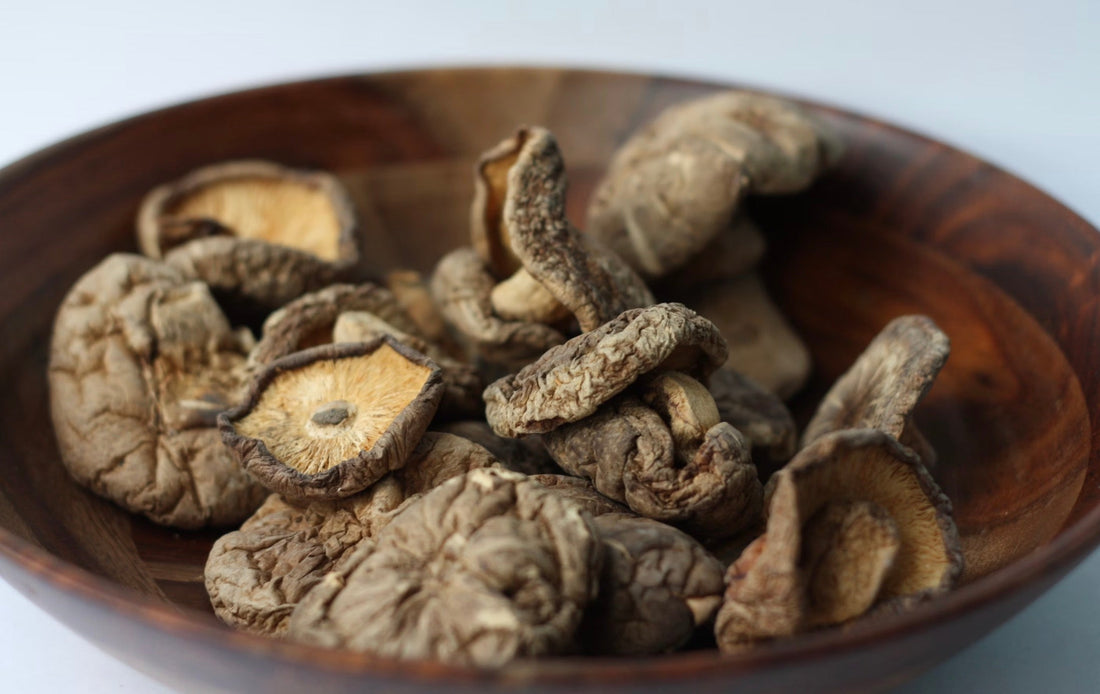
What is an Adaptogen? Unlocking Nature’s Stress-Busting Secrets
11/20/24Share
Photo by on Unsplash
Table of content
In a world that often feels like it’s spinning off its axis, the quest for balance has never been more pressing. Enter adaptogens: nature’s subtle yet powerful allies in our relentless battle against stress. These remarkable substances have been embraced by herbalists and wellness enthusiasts alike, promising not only relief but a deeper understanding of our own bodies. But what exactly are adaptogens, and how can they transform your life? Let’s dive in.
What Are Adaptogens?
At their core, adaptogens are natural substances, primarily derived from plants and fungi, that help the body adapt to stress by promoting homeostasis. The term "adaptogen" was first coined in the 1940s by Russian scientist Nikolai Lazarev, who sought to identify substances that could enhance the body’s resistance to stressors. These remarkable compounds work holistically, influencing various physiological processes to restore balance and promote overall well-being.
The Science Behind Adaptogens
Historical Context
Adaptogens are not a modern fad; they have deep roots in ancient wellness practices. From the Ayurvedic texts of India to the herbal traditions of Traditional Chinese Medicine, these adaptogenic herbs have been utilized for centuries. They were revered not just for their medicinal properties, but also for their ability to enhance vitality and longevity.
Modern Research and Findings
Today, the interest in adaptogens is backed by a growing body of scientific research. Studies have shown that key adaptogenic compounds can modulate the body’s stress response, improve cognitive function, and even enhance physical performance. For instance, research on Rhodiola Rosea has revealed its efficacy in reducing fatigue and improving mood, while the benefits of reishi mushrooms in promoting restful sleep are increasingly recognized.
Types of Adaptogens
While there are countless adaptogens, a few stand out for their widespread use and remarkable benefits:
- Ashwagandha: Known for its stress-reducing properties, this herb is a staple in Ayurvedic medicine.
- Rhodiola Rosea: Often hailed as an energy booster, it helps combat fatigue and elevate mood.
- Holy Basil (Tulsi): Renowned for its immune-supporting and anti-inflammatory effects.
- Ginseng: A classic adaptogen that enhances physical endurance and cognitive function.
-
Medicinal Mushrooms:
- Reishi: Often called the "mushroom of immortality," it promotes relaxation and aids sleep.
- Cordyceps: A powerful energy booster that enhances athletic performance.
Comparative Analysis
Each adaptogen offers unique benefits, making them suitable for various needs. For instance, while ashwagandha excels in reducing anxiety, ginseng may be preferred by those seeking an energy lift. Understanding these nuances can help you choose the right adaptogen for your lifestyle.
Benefits of Incorporating Adaptogens into Your Life
The advantages of adaptogens extend beyond mere stress relief:
- Physical Health Benefits: Adaptogens can bolster your immune function, enhance energy levels, and accelerate recovery from physical exertion.
- Mental Health Benefits: These natural powerhouses help manage stress, reduce anxiety, and improve focus, creating a clearer path to mental clarity.
- Lifestyle Enhancements: Integrating adaptogens into your daily routine—be it through teas, supplements, or culinary creations—can elevate your overall quality of life.
How to Choose the Right Adaptogen for You
With a plethora of options available, selecting the right adaptogen can feel overwhelming. Consider the following:
- Assessing Your Needs: Identify your primary stressors and health goals.
- Forms of Adaptogens: Adaptogens come in various forms—powders, capsules, teas, and tinctures—each with unique benefits.
- Quality Considerations: Look for high-quality products that emphasize purity and sourcing, ensuring you’re investing in your health.
User Testimonials and Case Studies
Real-life stories often illuminate the profound impact of adaptogens:
- Sarah, a busy executive: "Incorporating ashwagandha into my morning routine has transformed my approach to stress. I feel more centered and focused.”
- Mark, an athlete: "Cordyceps has been a game changer for my performance; my endurance has improved significantly.”
Potential Side Effects and Considerations
While adaptogens are generally safe, it’s essential to be mindful of individual needs:
- Who Should Avoid Adaptogens?: Pregnant women or individuals with specific health conditions should consult a healthcare professional before use.
- Recommended Dosages: Adhering to recommended dosages is crucial for maximizing benefits and minimizing potential side effects.
Incorporating Adaptogens into Your Routine
Ready to embrace the adaptogenic lifestyle? Here are some simple recipes and tips:
- Adaptogen-Infused Teas: Brew a calming cup with reishi and honey.
- Smoothies: Add a scoop of ashwagandha powder to your morning smoothie for a stress-busting boost.
Conclusion
In navigating the complexities of modern life, adaptogens offer a beacon of hope—a natural way to restore balance and promote well-being. As you explore the world of adaptogens, consider integrating them into your daily routine for transformative benefits. Ready to take the plunge? Visit Wildspore for a curated selection of adaptogen products and deepen your understanding of these remarkable botanicals.
Additional Resources
Frequently Asked Questions about Adaptogens
What are adaptogens?
Adaptogens are natural substances, primarily derived from plants and mushrooms, that help the body adapt to stress by promoting homeostasis. They work holistically to restore balance and promote overall well-being[1].
How do adaptogens work?
Adaptogens modulate the body's stress response, influencing various physiological processes. They can help reduce fatigue, improve cognitive function, and enhance physical performance by targeting the body's stress-protection response[2].
What are some common types of adaptogens?
Common adaptogens include Ashwagandha, Rhodiola Rosea, Holy Basil (Tulsi), Ginseng, and medicinal mushrooms like Reishi and Cordyceps. Each offers unique benefits for stress relief and overall health[3].
How can I incorporate adaptogens into my daily routine?
Adaptogens can be incorporated through teas, supplements, powders added to food or beverages, and tinctures. For example, you can add adaptogen powders to your morning coffee or smoothie, or drink adaptogenic teas[4].
Are there any side effects of taking adaptogens?
While adaptogens are generally well-tolerated, some people may experience side effects such as digestive upset or headaches. It's important to consult with a healthcare professional before starting any new supplement regimen[1].
How long does it take to see the benefits of adaptogens?
The time to experience benefits can vary, but many people report improvements within a few weeks of consistent use. It's important to note that adaptogens work best when used as part of a holistic approach to health and wellness[4].
Can I take multiple adaptogens at once?
While it's possible to take multiple adaptogens, it's wise to consult with a healthcare professional to ensure compatibility and appropriate dosing for your individual needs[1].
Are adaptogens safe for everyone?
Adaptogens are generally considered safe for most people, but certain groups (such as pregnant women or those with specific health conditions) should consult a healthcare provider before use. Always check with your doctor, especially if you're taking medications[3].
What's the best time of day to take adaptogens?
The best time can depend on the specific adaptogen and your goals. For example, energizing adaptogens like Rhodiola might be best taken in the morning, while calming ones like Ashwagandha could be beneficial in the evening[2].
How do I choose the right adaptogen for me?
Choosing the right adaptogen depends on your specific needs and health goals. Consider factors like your primary stressors, desired benefits, and any existing health conditions. It's always best to consult with a healthcare professional for personalized advice[4].
This page has been viewed 0 times.






